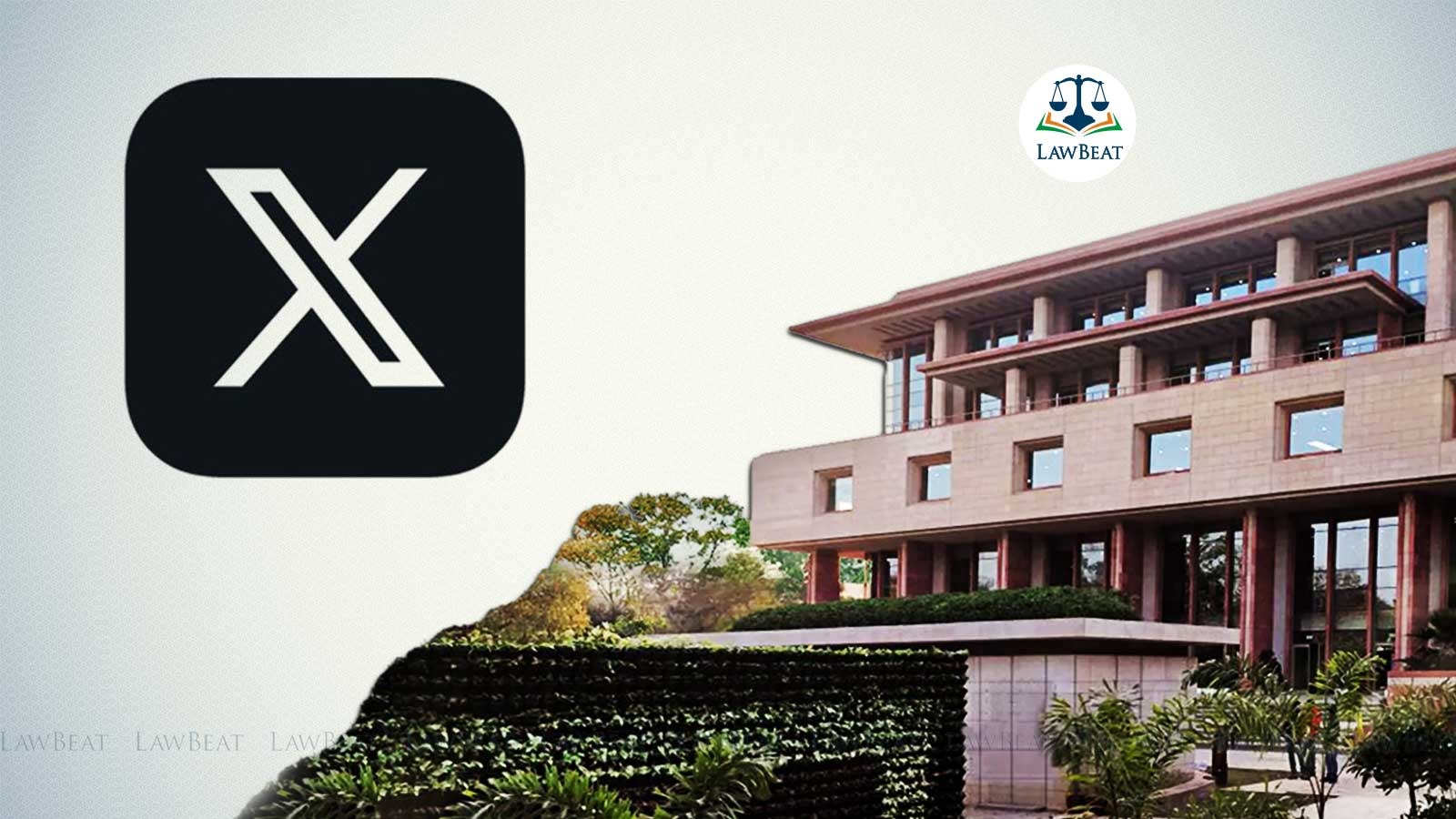X Corp a Private Entity, Not Subject to Writ Jurisdiction As It Does Not Carry Out Governmental Obligations: Delhi HC

“X is voluntary and user-driven, distinguishing it from entities that operate under a compulsion of law or provide services that are essential public utilities”, the court highlighted.
The Delhi High Court, recently, held that a writ jurisdiction does not apply to X Corp (Twitter) as it is a private entity, governed under private laws and does not fulfill any governmental duties or obligations. The court made such observations in a writ petition filed by Sanchit Gupta against X for blocking his account and halting the monetization without any due notice or warning.
The bench of Justice Sanjeev Narula held, “The platform operates as a private entity under private law and does not carry out any governmental duties or obligations. Therefore, it is not amenable to writ jurisdiction under Article 226 as currently interpreted by jurisprudence on this issue”.
Sanchit Gupta created an account on platform X with the username ‘@sanchit gs’. Subsequently, he subscribed to various premium services offered by the Respondent, including X Premium and X Premium Plus services. In August 2023, X Corp informed Gupta via email that he was eligible to receive a portion of the advertising revenue generated through his account. He began receiving payments as part of this revenue-sharing arrangement from September 2023 until his account was suspended.
However, in June 2024, Gupta observed a reduction in the reach of his account and stagnation in follower growth, raising concerns about potential shadow banning or other restrictive actions applied to his account without his knowledge. The situation escalated on 15th July 2024, when X Corp notified Gupta that his account’s monetization was paused due to the suspension of his account, without any prior show cause notice, intimation, or warning. This action by X Corp prompted Gupta to file multiple appeals to restore his account, none of which, according to him, were acknowledged or resolved by the platform.
Sanchit Gupta, represented by Advocate Ankit Shah, argued that Respondent No. 2, X Corp, was subject to writ jurisdiction as it performed a ‘public function’ by facilitating public discourse through its social media platform.
The court reviewed the concept of a ‘public function’ under Article 226 of the Constitution and noted that it played a crucial role in determining the maintainability of a writ petition against private entities or non-state actors. However, the court observed that the term ‘public function’ was not easily defined but was understood as functions similar to or closely related to those traditionally part of governmental duties or performed by the state in its sovereign capacity. This included situations where the state outsourced its functions to a private entity or where the private entity performed a service so intertwined with state obligations that it became a necessary function for societal welfare, the court emphasized.
Therefore, the court opined that for a writ to be maintainable against a private entity under Article 226 of the Constitution, it had to be demonstrated that the entity's action or conduct involved performing a public duty or function; the nature of the activity should involve a public interest or be linked to a state obligation; and the function performed by the entity should be integral to state functions or undertaken by virtue of some power vested by law. The threshold for a private entity to be amenable to writ jurisdiction was that it must undertake functions fundamentally governmental in nature or performed by virtue of the power vested by law.
Furthermore, the court observed that X Corp provided a digital platform for communication and social interaction, serving as a medium for public discourse and facilitating the exchange of information and ideas on a vast and instantaneous scale. Importantly, the court emphasized that it was a privately owned entity operating without specific governmental delegation or statutory obligations to perform any public duty. The court highlighted, “While ‘X’ plays a critical role in information dissemination and influencing public opinion, its core function is to provide a platform for expression—a service that has ‘public discourse’ as consequence, yet is private in operation. There is no directive, statutory or otherwise, from the government that delegates traditional state functions to X”.
Additionally, the court outlined that X Corp was voluntary and user-driven, distinguishing it from entities operating under compulsion of law or providing essential public utilities. The function of X Corp as a communication platform did not align with these precedents as it lacked statutory compulsion. Furthermore, “The function or service of providing a platform for communication or social interaction cannot be called be a function similar to that of a governmental function or integral to state functions. Thus, it cannot be said that X Corp performs a public function or discharges a public duty”, the court outlined.
In conclusion, despite its significant role in public discourse and the potential impact on public opinion and democratic engagement, X Corp did not perform a ‘public function’ in the strict legal sense intended under Article 226 of the Constitution. The platform operated as a private entity under private law and did not carry out any governmental duties or obligations. Therefore, it was not amenable to writ jurisdiction under Article 226 as currently interpreted by jurisprudence on this issue.
Accordingly, the court dismissed the writ petition.
For Petitioner: Advocates Ankit Shah, Avneesh Kumar Upadhyaya, Megha Tyagi, Kriti Jain and Tarun Arora
For Union: Standing Counsel Mukul Singh with Government Pleader Seema Singh
Case Title: Sanchit Gupta v Union of India and X Corp (2024:DHC:5713)
